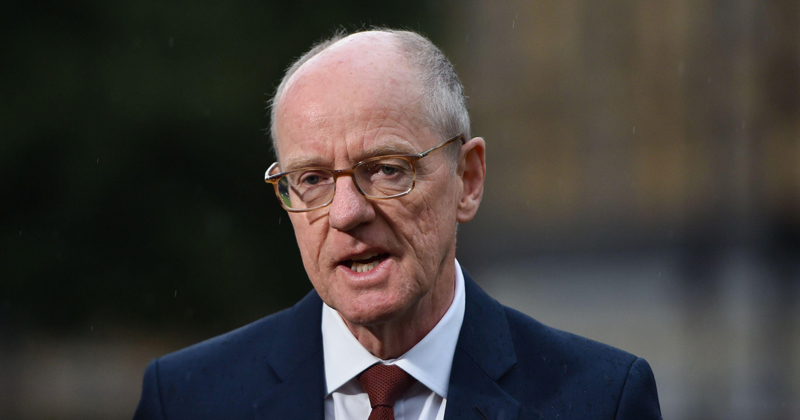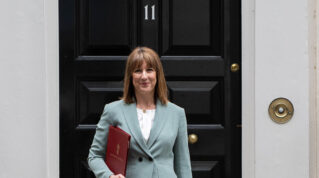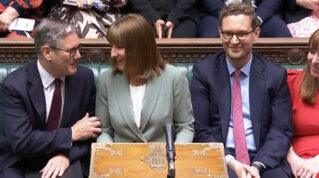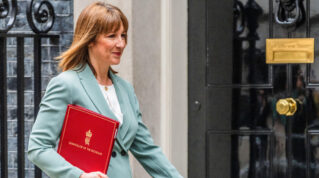Ministers must restore £370 million stripped from next year’s school budgets after a funding gaffe, unions say, as heads shelve plans to boost staff, run more trips and improve SEND provision.
Last Friday, the Department for Education admitted it had inflated the amount of money schools would get in 2024-25 by 0.62 per cent after miscalculating pupil numbers.
It means a typical secondary will be £58,000 worse-off than it expected based on indicative allocations published in July. An average primary will be £12,000 worse-off.
Gillian Keegan, the education secretary, has ordered an investigation into the error, while Susan Acland-Hood, the department’s permanent secretary, has apologised.
But in a letter to Keegan on Thursday, the unions ASCL, NAHT, NASUWT and the NEU warned some schools were facing “the very real prospect of cuts to provision”.
They highlighted a pledge by Rishi Sunak at the Conservative Party conference to make education his “main funding priority” in future spending reviews.
‘Honour your commitments’
“In light of this, we call on your government to meet that commitment to invest in education, by honouring the commitments your minister made and by restoring the original [national funding formula] rates.”
It also breached a pledge made in a written statement to parliament by Nick Gibb, the schools minister, unions said.

Gibb said that “funding for mainstream schools through the schools national funding formula is increasing by 2.7 per cent per pupil compared to 2023-24”. In fact, it will rise by just 1.9 per cent.
Schools use July allocations data as an indicative idea of future budgets, which they are expected to forecast over three-year periods.
In an email on Wednesday, the DfE tried to downplay the situation saying school leaders who had not already started planning would “not need to re-plan on the basis of this change”.
Final allocations are also published each December based on school census data, which means some schools had not drawn up plans for additional spending.
‘Hope has just disappeared’
However Vic Goddard, the co-principal of Passmores Academy in Essex, said the original funding allocations “felt like an opportunity to reintroduce stuff to give kids opportunities they should have had already”.
“That hope has just disappeared because…somebody made a mistake.”
The error means a budget of about £66,000 less than presumed. It also means an end to plans to hire support staff and redevelop a sensory space for autistic pupils.

“We’ve had to make do…with lightbulbs going [in the sensory space] and not be able to afford to replace them,” a “heartbroken” Goddard said. “It’s the first time I’ve been excited about a budget for years.”
Schools Week analysis shows England’s three largest academy trusts will be millions of pounds worse-off.
United Learning Trust will miss out on about £2.6 million. Projected budgets at the Academies Enterprise Trust and Reach2 will fall by about £1.7 million and £810,000 respectively.
At Nelson Mandela Primary School in Birmingham, £20,000 less than expected means potential cuts to the number of teaching assistants.
“We’re already at a skeleton staff of teachers”, said Amy Lassman, the school’s head. “There will [also] be further cuts to trips and enrichment.”
‘It stops us going above and beyond’
Robert Farmer, the chief executive of the Hamwic Trust, said his chain would cope “reasonably OK”. But he would rather the DfE “got it right first time”.
However, the changes would “restrict” schools’ opportunities “to go above and beyond”.
“To me it’s about schools stripping back the nice-to-haves again. It does impact on being able to have TAs in classrooms; it can impact on music provision at primary.
“It’s the things you might be doing to enrich the curriculum for pupils or give them better support…school trips for a start.”
The budget at Chilwell School in Nottingham will go down by about £46,000.
But David Phillips, its head, said he had “always worked on the basis of taking the most negative view” in financial projections and would not need to make changes.
Richard Challoner School in Surrey will miss out on £40,000. Head Sean Maher said three-year financial projections were “works of fiction” because of unpredictability of changes to the funding formula, inflation and pay awards.
But while the school has not made plans to spend extra cash, it does have plans to cut staff numbers.
“I’ve got to try and save about £100,000 to £120,000 next year. It’s probably going to look a bit grimmer now.”
NEU decides not to reopen pay dispute
The overall amount awarded to schools hasn’t changed and is still at £59.6 billion. The error was in adding up how many pupils will receive cash next year.
It is understood the mistake was down to pupil numbers for at least one council that recently split into two not being counted. Just the pupil numbers for the original council, and not the new one, were factored into funding calculations.

At the weekend, Daniel Kebede, the NEU’s general secretary, told members the error gave “grounds to reopen” its pay and funding dispute.
Kebede said the pay deal was agreed “on the premise that there would be protections around pupil funding”.
The union’s executive met on Thursday, but did not resolve to reopen the dispute or call any action at this stage.
Kebede told Schools Week members were “rightly furious”, and would “continue to put pressure” on the government to commit to the £370 million uplift, along with £4.4 billion annually to fix the school estate.
“We need to see a drastic gear-change from a government which appears not to value education.”
The department told Schools Week on Friday it had discovered the error in September, but did not say when in the month it was found.

















Your thoughts